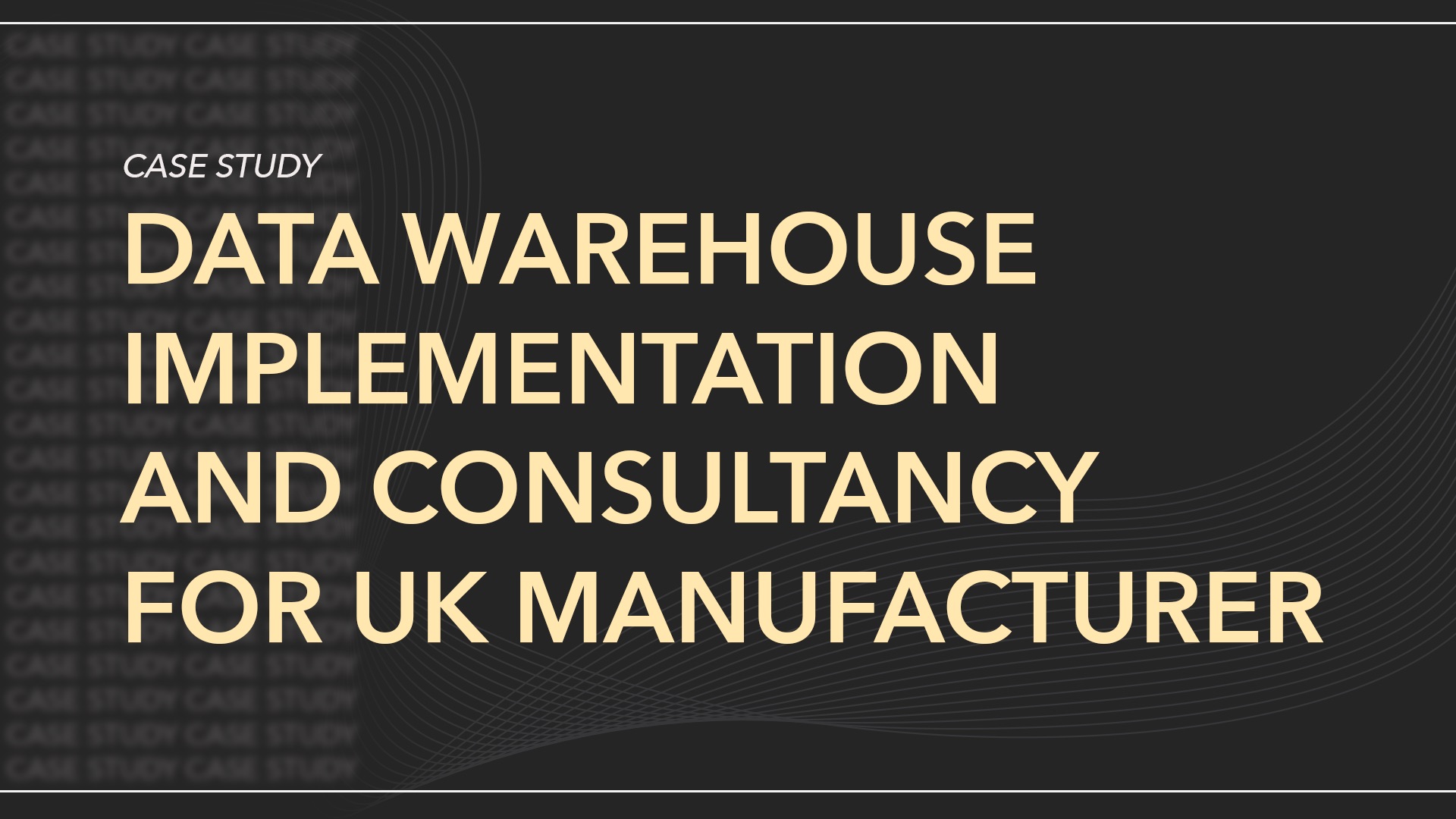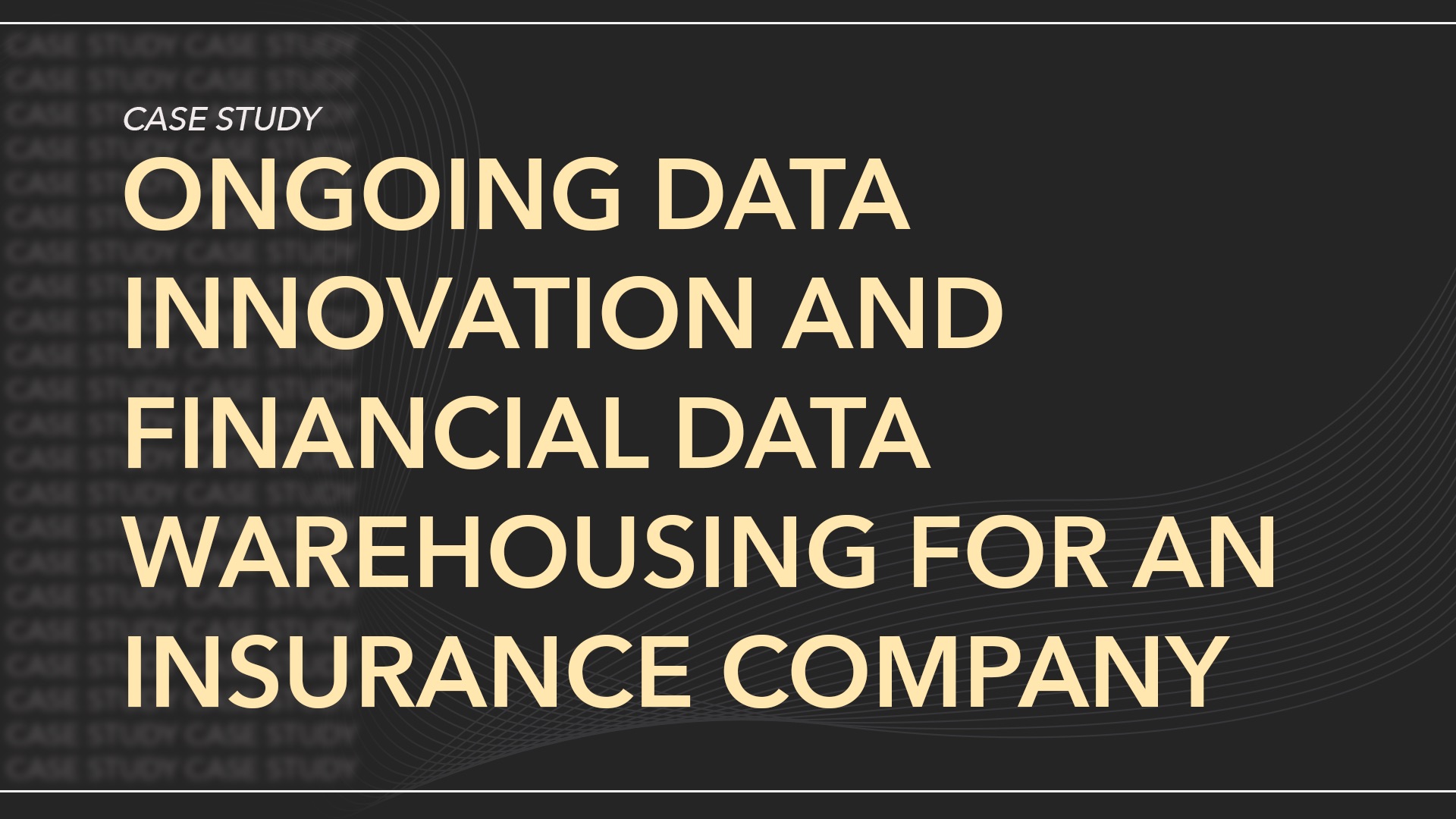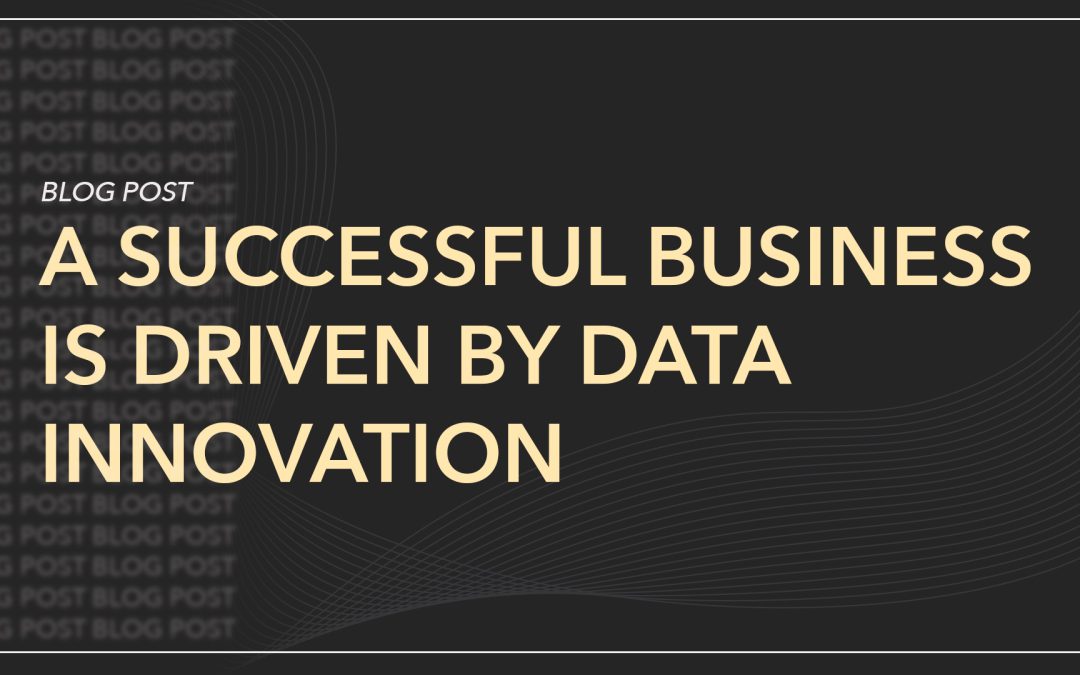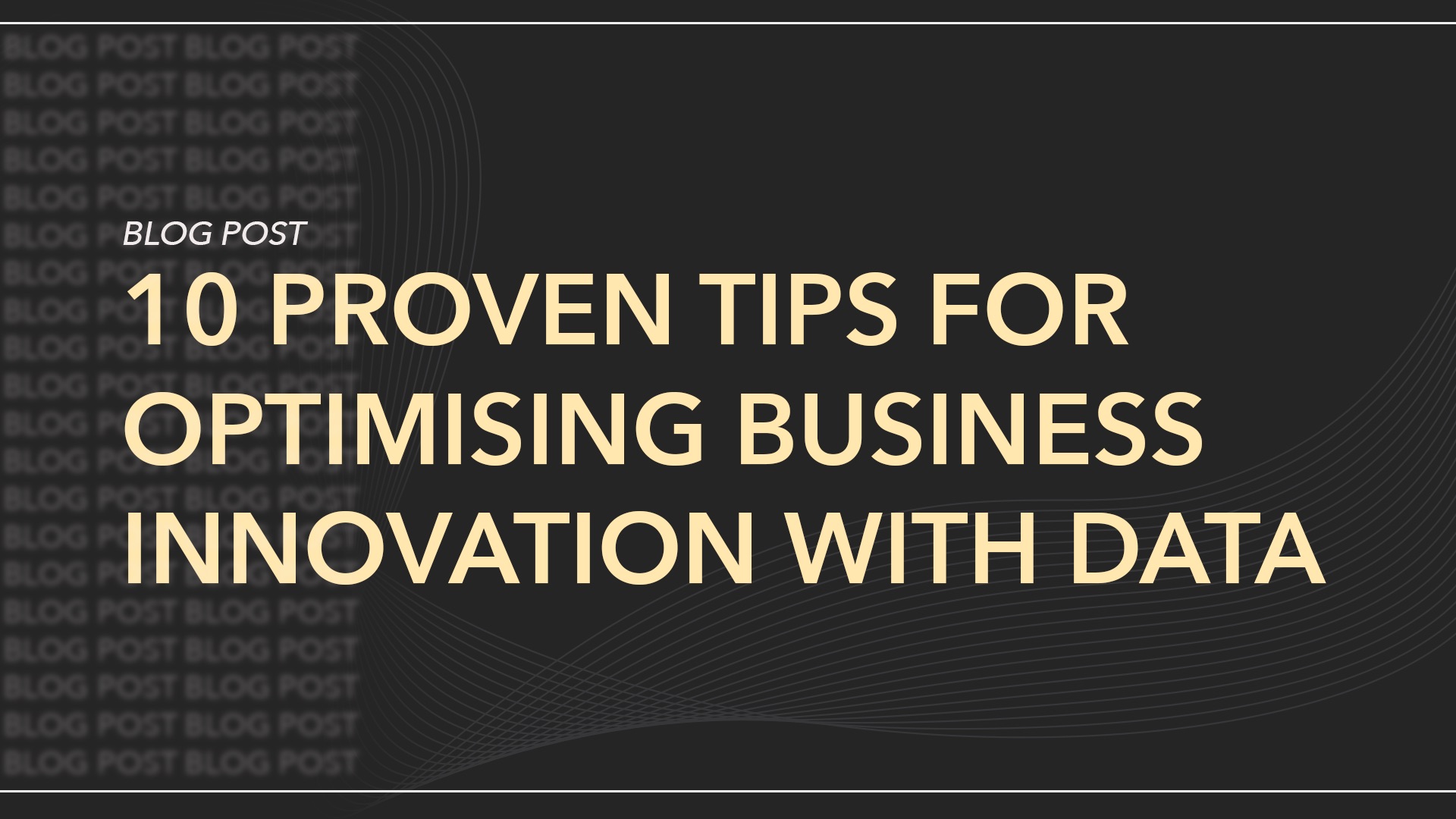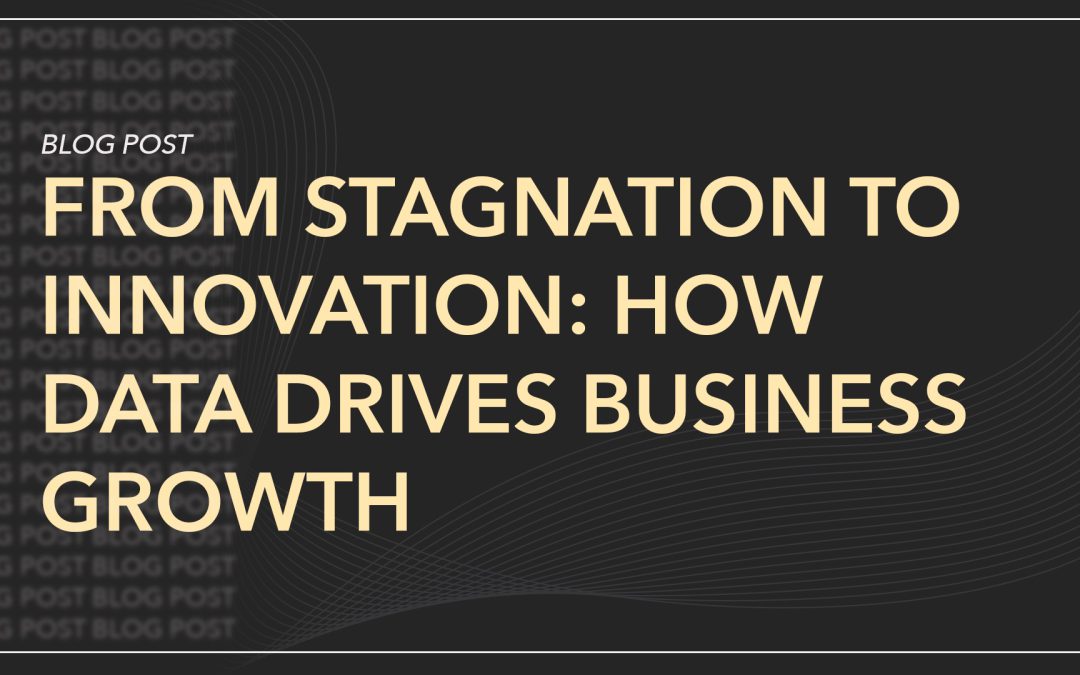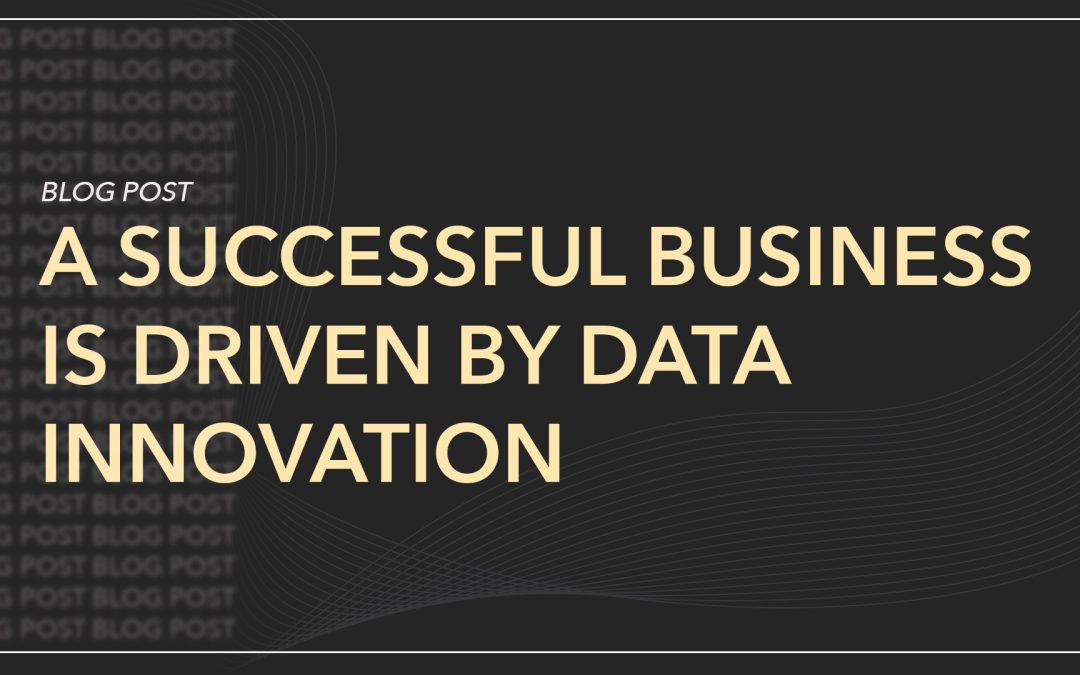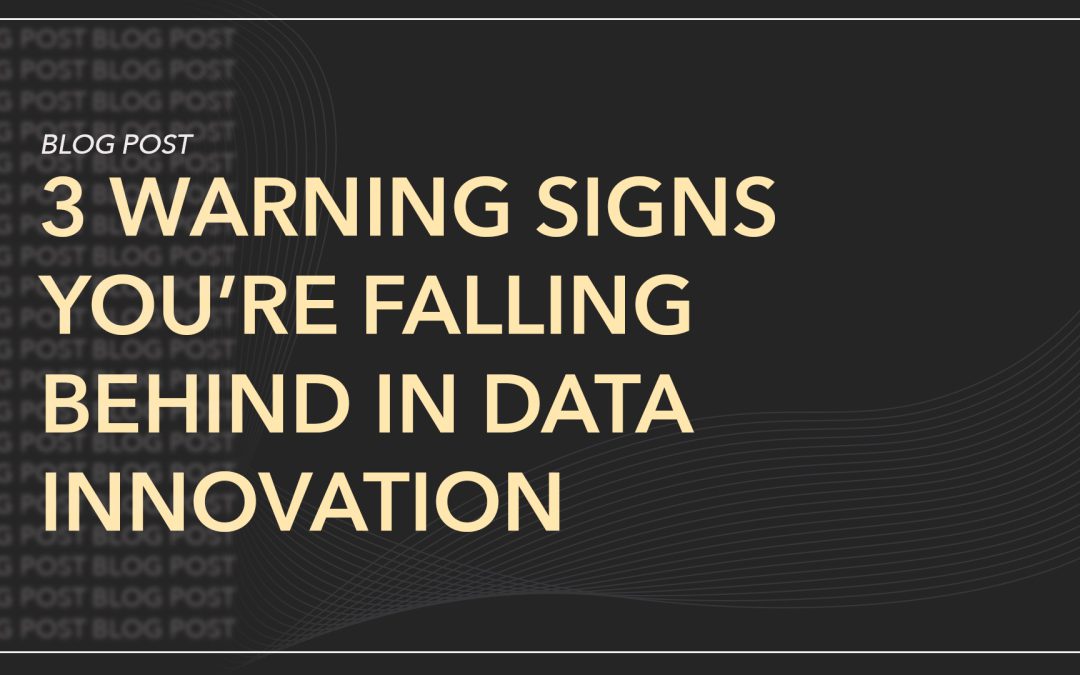
3 Warning Signs You’re Falling Behind in Data Innovation
3 Warning Signs You’re Falling Behind in Data Innovation
Data innovation is no longer a future priority – it is a necessity.
Companies using real-time insights, automation, and AI are gaining a serious edge: cutting costs, improving customer loyalty, and innovating faster.
Those that dont are quietly losing ground, often without realising it until performance gaps are too far gone and become irreversible.
Recognising the early signs of falling behind can be the difference between thriving and struggling in a data-driven economy.
Here are three critical warning signs to watch out for – and clear actions you can take to regain momentum.
Want to assess your company’s readiness?
Download our Data Innovation Toolkit!
With actionable checklists – this will help you take the first steps to innovation.
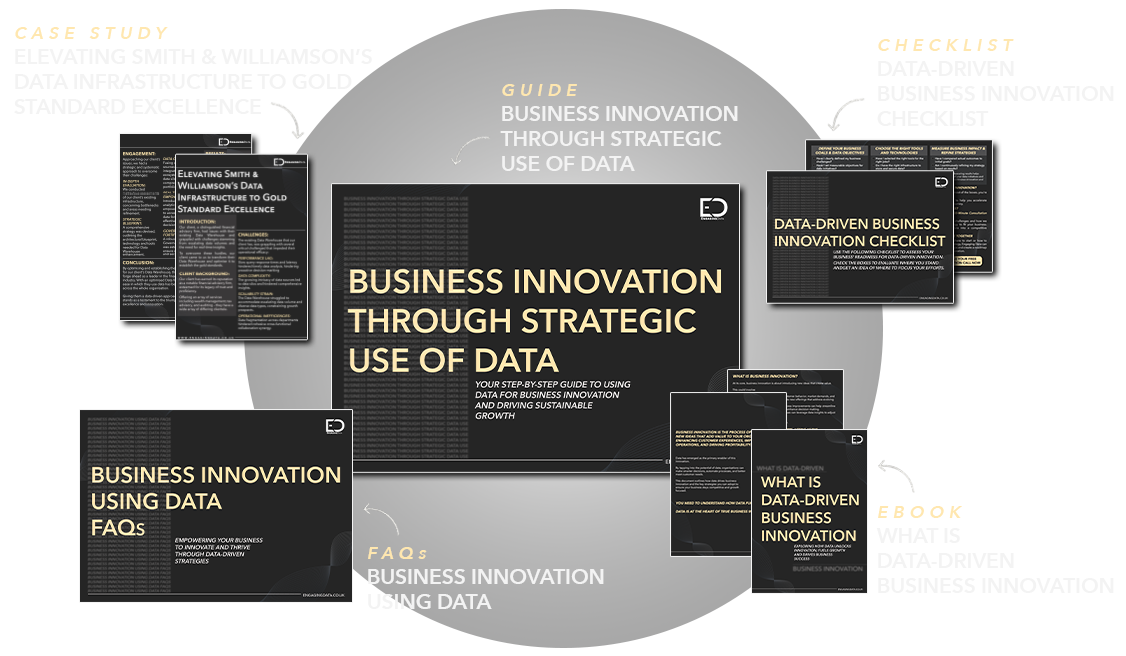
1. You’re Missing Out on Emerging Data Trends
Falling behind often starts with missing key shifts in how data is used to drive business decisions.
Warning Signs:
- Leadership teams rely heavily on quarterly and yearly historical reports instead of real-time dashboards.
- Theres little to no investments in upcoming technologies like AI, machine learning, or predictive analytics.
- Data remains fragmented and siloed across departments, with no unified view of customers, operations, or market conditions.
Why it matters:
When companies’ base decisions on old data they are effectively guessing.
Meanwhile, competitors using real-time analytics can predict customer behaviour, optimise supply chains and adapt pricing dynamically.
This leads to faster growth, higher margins, and stronger brand loyalty.
Practical Next Steps:
Run a simple audit: How often does your leadership make decisions based on data that’s less than 24-hours old?
2. You’re Ignoring the Power of Real-Time Insights, AI, and Automation
Another major red flag: failing to tap into the capabilities of real-time data, AI, and automation.
The risks include:
- Slower Reaction Time: Market trends and customer needs evolve daily, not quarterly.
- Higher Operational Costs: Manual processes eat up employee time and budget.
- Customer Churn: Customers expect fast, personalised experiences – those who lag lost business to more agile competitors.
- Employee Frustration: Talented employees get frustrated when bogged down with outdated, manual processes.
The deeper issue:
Many businesses underestimate the hidden cost of delays.
Every month you wait to implement automation or AI isn’t just a missed opportunity – it’s a growing competitive disadvantage.
According to McKinsey, companies that fully integrate AI across operations see profit margin increases of up to 25% compared to industry peers.
Why some delay – and why that’s dangerous:
Some organisations fear the perceived complexity or costs of AI and automation. But waiting often means having to leapfrog two or three generations of competitors later – a much harder and riskier move.
Practical next steps:
Identify one manual, repetitive process today (such as reporting or lead scoring) that could be automated quickly using a no-code or low-code tool.
3. You’re Treating Data as a ‘Back Office’ Function, Not a Strategic Asset
Finally, if data is siloed within IT or treated purely as a compliance necessity, your company is missing its biggest strategic lever.
Warning signs:
- Data projects are seen as technical tasks, not business enablers.
- The executive team discussed ‘IT updated’ but not ‘data-driven growth strategies.’
- Business teams and technical teams rarely collaborate on customer experience or innovation.
Want to understand the warning signs in more details?
Download Your 2025 Guide to Data Innovation

Why it matters:
Data isn’t just a record of what happened. When used properly, it can reveal what will happen next. And how to act ahead of competitors.
Companies treating data as a strategic asset outperform their peers because they:
- Design products based on predictive customer insights.
- Deliver proactive, personalised services.
- Optimise operations before inefficiencies become visible.
Practical next steps:
Review your leadership meeting agendas: how often is data-driven opportunity or innovation discussed at the board level, beyond just compliance?
How to Get Back on Track: Simple, Strategic Fixes
You don’t need a sweeping digital transformation to regain your footing.
Start small, think strategically, and build momentum.
Here’s how:
- Create a Data Innovation Roadmap: Map short-term wins alongside long-term goals. Focus on initiatives that drive revenue, efficiency, or customer experience improvements.
- Launch a Real-Time Insights Pilot: Choose a customer-facing department (e.g., sales, customer service) to start using real-time dashboards and see measurable impact quickly.
- Automation Where It Hurts Most: Prioritise high-friction processes that slow down employees or customers – automate these first to unlock faster productivity gains.
- Appoint a Data Champion or SME: Identify someone responsible for embedding data-driven thinking across departments – not just IT. Give them authority, budget, and clear KPIs.
- Bring in External Expertise: Working with data innovation partners can fast-track your progress, avoid pitfalls, and provide access to cutting-edge tools and frameworks.
Need help with bringing in external expertise?
Check out our blog post, 10 Tips for Choosing the Right Data Consultancy, to gain more insights.
Conclusion
Companies rarely realise they are falling behind in data innovation until the damage is visible – lost customers, slower growth, missed market opportunities.
The good news: spotting the warning signs early gives you options.
By acting now, you can close the gap, outperform slower competitors, and build a future-ready business.
Ask yourself:
- Are your decisions driven by live, real-time data?
- Are you leveraging AI and automation to improve speed and personalisation?
- Is data innovation a priority for leadership – or an afterthought?
Get started today. Book your Data Innovation Session!
In this 30-minute session, we’ll explore how you can drive efficiency, reduce costs, and uncover new growth opportunities by leveraging data in smarter ways.



